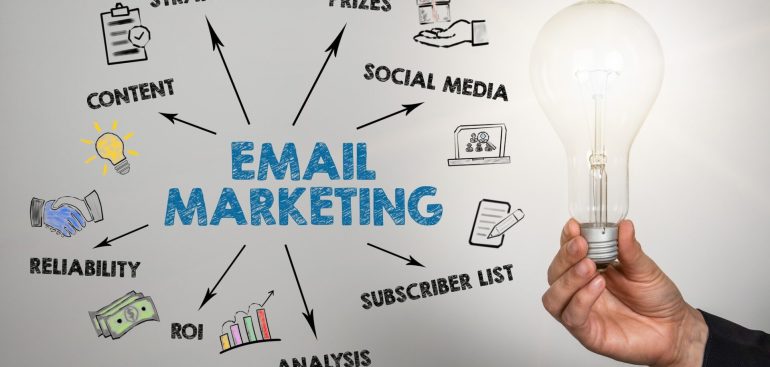
Email marketing remains one of the most effective and versatile digital marketing strategies for businesses of all sizes. With its ability to deliver personalized messages, nurture leads, drive conversions, and build long-term customer relationships, email marketing continues to be a cornerstone of successful online marketing campaigns. In this comprehensive guide, we’ll explore the fundamentals of email marketing, best practices, key metrics, and the benefits it offers to businesses.
What is Email Marketing?
Email marketing involves sending targeted messages, promotions, newsletters, and updates to a list of subscribers via email. It allows businesses to communicate directly with their audience, deliver relevant content, promote products or services, and drive engagement and conversions. Email marketing platforms such as Mailchimp, Constant Contact, HubSpot, and Sendinblue offer tools and features to create, automate, and analyze email campaigns effectively.
Key Components of Email Marketing:
- Email List Building: Building a quality email list of subscribers is the foundation of successful email marketing. This includes capturing leads through website opt-in forms, lead magnets (ebooks, whitepapers, guides), social media promotions, contests, and events. It’s essential to obtain permission and comply with GDPR and CAN-SPAM regulations.
- Segmentation and Personalization: Segmenting your email list based on demographics, behavior, interests, purchase history, and engagement levels allows for personalized and targeted email campaigns. Personalization techniques such as using the subscriber’s name, customizing content, and recommending relevant products/services can significantly improve engagement and conversion rates.
- Email Campaign Creation: Creating engaging and compelling email campaigns involves crafting attention-grabbing subject lines, designing visually appealing layouts, incorporating clear calls-to-action (CTAs), and providing valuable content. Types of email campaigns include promotional emails, newsletters, welcome emails, abandoned cart emails, re-engagement emails, and automated drip campaigns.
- Automation and Workflows: Leveraging automation tools and workflows streamlines email marketing processes, saves time, and delivers timely and relevant messages to subscribers based on their actions and behaviors. Automated workflows can include welcome series, lead nurturing sequences, birthday/anniversary emails, post-purchase follow-ups, and re-engagement campaigns.
- Testing and Optimization: A/B testing different elements of email campaigns (subject lines, CTAs, content, design) helps identify what resonates best with your audience and improves campaign performance. Analyzing key metrics such as open rates, click-through rates (CTR), conversion rates, bounce rates, and unsubscribe rates provides insights for continuous optimization and improvement.
Best Practices for Effective Email Marketing:
- Build and maintain a clean and engaged email list by regularly removing inactive subscribers and respecting unsubscribe requests.
- Segment your email list based on relevant criteria to deliver personalized and targeted content.
- Use compelling subject lines, engaging visuals, and clear CTAs to capture attention and encourage action.
- Provide valuable and relevant content that solves problems, educates, entertains, or offers exclusive benefits to subscribers.
- Optimize emails for mobile devices to ensure a seamless user experience across all devices.
- Test different elements of email campaigns and use data-driven insights to refine and improve performance over time.
- Comply with email marketing regulations (GDPR, CAN-SPAM) and respect subscribers’ privacy and preferences.
Benefits of Email Marketing:
- Direct Communication: Email marketing allows businesses to communicate directly with their audience in a personalized and targeted manner.
- High ROI: Email marketing consistently delivers a high return on investment (ROI) compared to other marketing channels.
- Engagement and Conversion: Email campaigns can drive engagement, clicks, conversions, and sales by delivering timely and relevant messages to subscribers.
- Nurturing Relationships: Email marketing helps build and nurture long-term relationships with customers by providing valuable content, offers, and updates.
- Measurable Results: Email marketing platforms provide detailed analytics and reporting tools to track campaign performance, open rates, CTR, conversions, and ROI.
- Cost-Effective: Email marketing is cost-effective, scalable, and allows businesses to reach a large audience without significant overhead costs.
In conclusion, email marketing remains a powerful and essential tool for businesses to connect with their audience, drive engagement, and achieve marketing goals. By following best practices, leveraging segmentation and personalization, automating workflows, testing and optimizing campaigns, and analyzing performance metrics, businesses can unlock the full potential of email marketing to drive growth, loyalty, and revenue.

